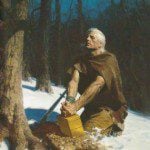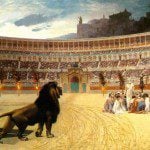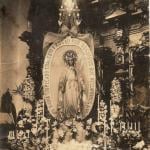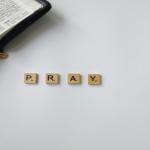
A new article has appeared today in Interpreter: A Journal of Latter-day Saint Faith and Scholarship. It’s by Professor Matthew Bowen:
“Becoming Men and Women of Understanding: Wordplay on Benjamin — An Addendum”
Abstract: Royal and divine sonship/daughterhood (bānîm = “children”/“sons,”bānôt = “daughters”) is a prevalent theme throughout the Book of Mosiah. “Understanding” (Hebrew noun, bînâ or tĕbûnâ; verb, bîn) is also a key theme in that book. The initial juxtaposition of “sons” and “understanding” with the name “Benjamin” (binyāmîn, “son of the right hand”) in Mosiah 1:2–7 suggests the narrator’s association of the underlying terms with the name Benjamin likely on the basis of homophony. King Benjamin repeatedly invokes “understand” in his speech (forms of “understand” were derived from the root*byn in Hebrew; Mosiah 2:9, 40; 4:4; cf. 3:15) — a speech that culminates in a rhetorical wordplay on his own name in terms of “sons”/“children,” “daughters,” and “right hand” (Mosiah 5:7, 9). “Understand,” moreover, recurs as a paronomasia on the name Benjamin at key points later in the Book of Mosiah (Mosiah 8:3, 20; 26:1–3), which bring together the themes of sonship and/or “understanding” (or lack of thereof) with King Benjamin’s name. Later statements in the Book of Mosiah about “becoming” the “children of God” or “becoming his sons and daughters” (Mosiah 18:22; 27:25) through divine rebirth allude to King Benjamin’s sermon and the wordplay on “Benjamin” there. Taken as a literary whole, the book of Mosiah constitutes a treatise on “becoming” — i.e., divine transformation through Christ’s atonement (cf. Mosiah 3:18–19). Mormon’s statement in Alma 17:2 about the sons of Mosiah having become “men of a sound understanding” thus serves as a fitting epilogue to a narrative arc begun as early as Mosiah 1:2.
If this sort of research interests you, I suggest a look at Dr. Bowen’s book Name as Key-Word: Collected Essays on Onomastic Wordplay and the Temple in Mormon Scripture.
***
Also up on the website of the Interpreter Foundation:
“Nursing Grievances? (Mosiah 10)”
A Video Supplement for Come, Follow Me Book of Mormon Lesson 17: “In the Strength of the Lord” (Mosiah 7-10)
This Interpreter Radio Roundtable for Come, Follow Me Book of Mormon Lesson 17, “In the Strength of the Lord,” on Mosiah 7-10, features Martin Tanner and Daniel Peterson and was extracted from the 29 March 2020 broadcast of the Interpreter Radio Show. You may listen to it at no cost to you. (This is the Interpreter Foundation, after all, which charges for almost nothing but, instead, depends upon donations to exist and function.) The complete show, which focused in its first hour on an interview with the prominent researcher of near-death experiences Melvin Morse, M.D., may be heard (also at no charge) at https://interpreterfoundation.org/interpreter-radio-show-march-29-2020/.
















